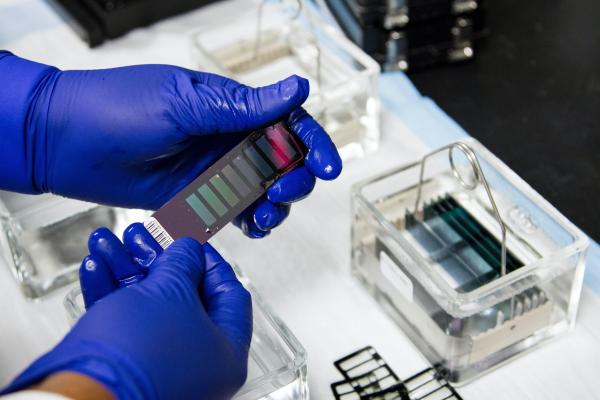Exploring the Applications of ICP-MS Instruments: Revolutionizing Analytical Chemistry
In analytical chemistry, technological advancements have played a crucial role in pushing the boundaries of scientific research and analysis. One such innovation that has gained significant recognition is the Inductively Coupled Plasma Mass Spectrometry (ICP-MS) instrument.
Offering unparalleled sensitivity, speed, and accuracy, ICP-MS has revolutionized various scientific disciplines by enabling precise measurements of trace elements and isotopes in a wide range of samples. In this blog post, we will delve into the applications of ICP MS instruments and highlight their remarkable contributions to scientific progress.
Environmental Analysis
ICP-MS has emerged as a powerful tool in environmental analysis, enabling scientists to monitor and quantify trace elements and pollutants in various ecological matrices such as air, water, soil, sediments, and biological samples.
By accurately detecting and measuring toxic heavy metals such as lead, mercury, arsenic, cadmium, and chromium, ICP-MS facilitates comprehensive assessments of environmental contamination levels. This information is instrumental in formulating effective strategies for pollution control, ecological risk assessment, and remediation efforts.
Moreover, ICP-MS's ability to analyze ultra-trace levels of elements enables researchers to study their behavior, transformations, and bioavailability in different environmental compartments, enhancing our understanding of complex ecological processes and the impacts of human activities on the environment.
Pharmaceutical and Biomedical Research
In pharmaceutical and biomedical research, ICP-MS has become an indispensable analytical technique for investigating trace elements' behavior, metabolism, and potential toxicity in biological systems. It enables researchers to accurately quantify the concentrations of essential and toxic elements in pharmaceuticals, biological tissues, body fluids, and other relevant samples.
This information is critical for assessing pharmaceutical products' safety, efficacy, and quality control, ensuring compliance with regulatory standards, and optimizing drug formulations. Furthermore, ICP-MS contributes to our understanding of the interactions between trace elements and biological processes, enabling the development of innovative therapeutic strategies and the exploration of trace element deficiencies or excesses in various diseases and disorders.
Geological Studies
Geologists harness the power of ICP-MS instruments to unravel the intricate elemental composition of rocks, minerals, and geological samples. By analyzing trace elements and isotopes, researchers gain insights into Earth's crust formation, evolution, and tectonic history.
ICP-MS facilitates the identification and quantification of rare and critical elements, aiding in the characterization of ore deposits and the exploration of economically valuable mineral resources. Isotopic analysis using ICP-MS contributes to the precise dating of rocks and minerals, enabling the reconstruction of geological timescales and the investigation of geological events such as volcanic eruptions, climate change, and mass extinctions.
Moreover, the ability of ICP-MS to measure ultra-trace element concentrations supports the study of elemental mobility, geochemical cycles, and environmental processes, fostering a deeper understanding of Earth's dynamic geology.
Food and Agricultural Sciences
ICP-MS has become an essential analytical technique in food and agricultural sciences, facilitating comprehensive analysis of the food product's mental composition, quality control, and safety assessment of accurately measuring critical nutrients and toxic elements in fruits, vegetables, grains, seafood, meat, dairy, and other food commodities, ICP-MS ensures compliance with food safety regulations and helps address nutritional deficiencies or potential health risks.
Moreover, ICP-MS assists in monitoring pesticide residues, environmental contaminants, and heavy metal concentrations in crops, soil, and irrigation water, aiding in developing sustainable agricultural practices, soil management, and environmental protection.
Additionally, ICP-MS plays a vital role in studying elemental uptake, distribution, and bioaccumulation in plants and animals, contributing to advancements in plant nutrition, animal health, and food security.
Forensic Analysis
In forensic analysis, ICP-MS has emerged as an invaluable tool for detecting, identifying, and analyzing trace elements in various forensic samples. Forensic scientists can establish crucial links between suspects, crime scenes, and victims by examining minute amounts of ingredients in materials such as hair, soil, glass fragments, gunshot residue, and paint chips.
Isotopic analysis using ICP-MS aids in determining the geographical origin of samples, providing valuable information for criminal investigations, archaeological studies, and art authentication. Moreover, ICP-MS enables the analysis of gunshot residues, explosives, and illicit drugs, supporting forensic ballistic investigations and drug enforcement efforts.
The high sensitivity, accuracy, and speed of ICP-MS make it an indispensable tool in forensic laboratories for trace evidence analysis and establishing scientific evidence in legal proceedings.
Nanotechnology and Material Science
In the rapidly evolving fields of nanotechnology and material science, ICP-MS plays a vital role in nanomaterials' characterization, quality control, and safety assessment. By precisely measuring elemental impurities, nanoparticle size distribution, and surface composition, ICP-MS ensures the reliability and reproducibility of nanomaterial synthesis and manufacturing processes.
It assists in assessing the potential release of toxic elements from nanomaterials, helping to address concerns related to environmental impact and human health risks. Furthermore, ICP-MS enables researchers to investigate the interactions between nanoparticles and biological systems, shedding light on nanotoxicology and nanomedicine and designing safer and more efficient nanomaterials for various applications.
The versatility and sensitivity of ICP-MS make it an indispensable tool for exploring the properties, behavior, and performance of advanced materials at the nanoscale.
Conclusion
The applications of ICP-MS instruments have had a profound impact across various scientific disciplines. As technology advances, ICP-MS instruments are anticipated to expand their capabilities further, leading to discoveries and advancements in analytical chemistry, thereby fueling scientific progress.

